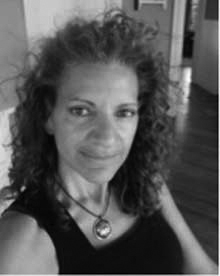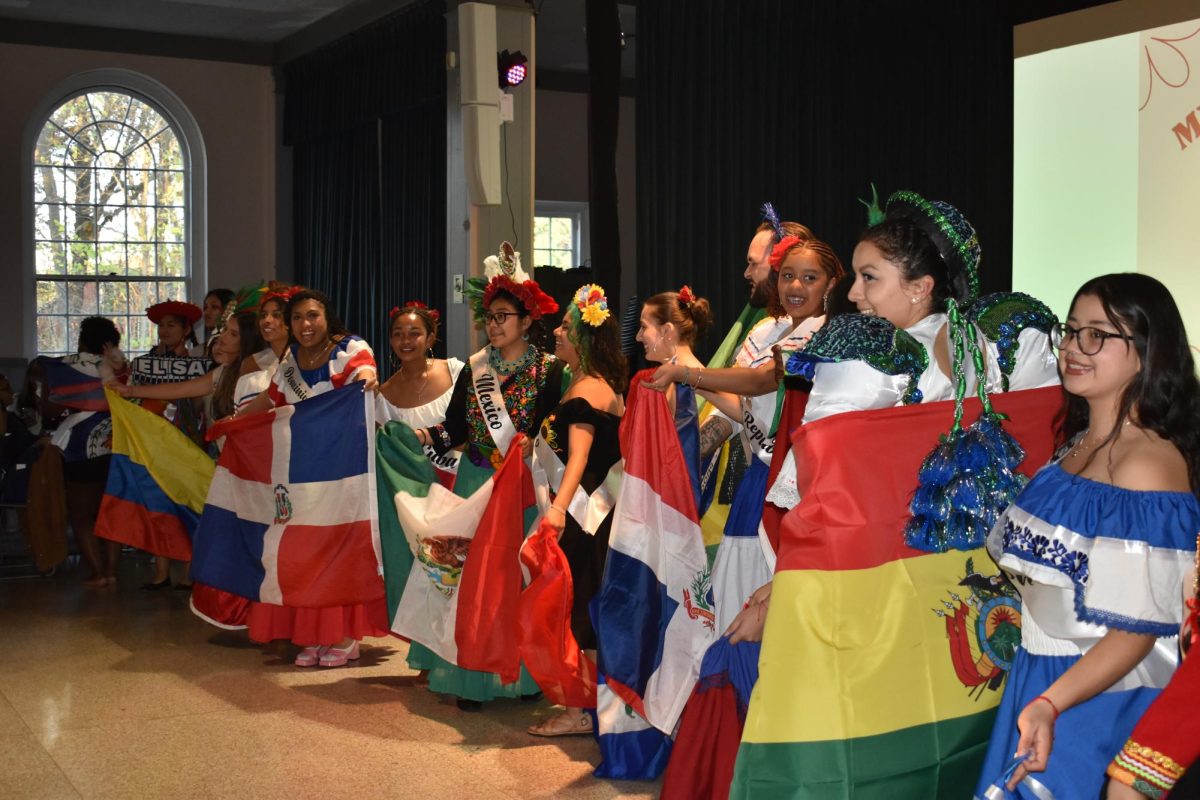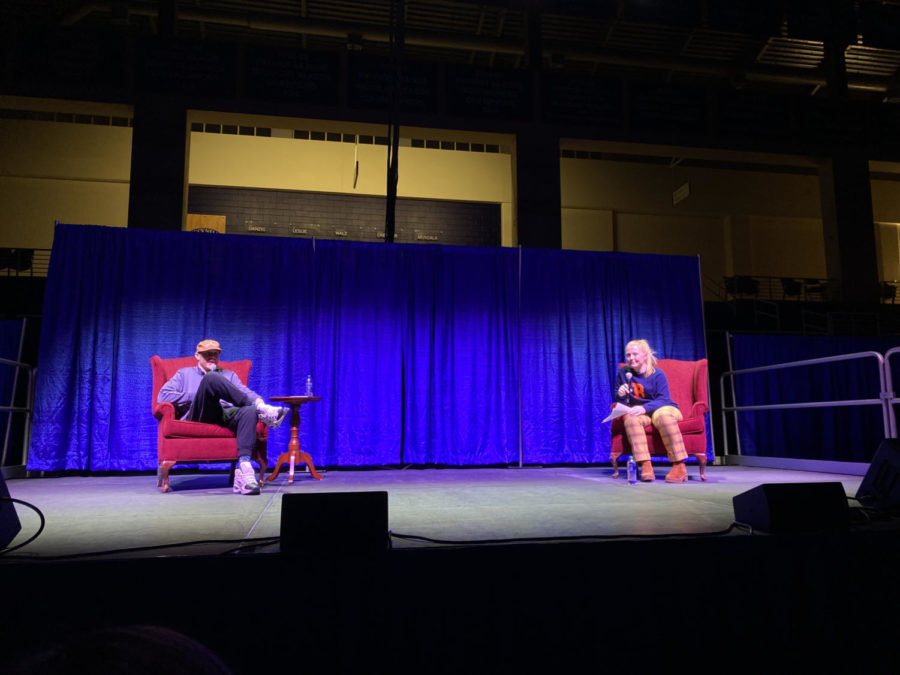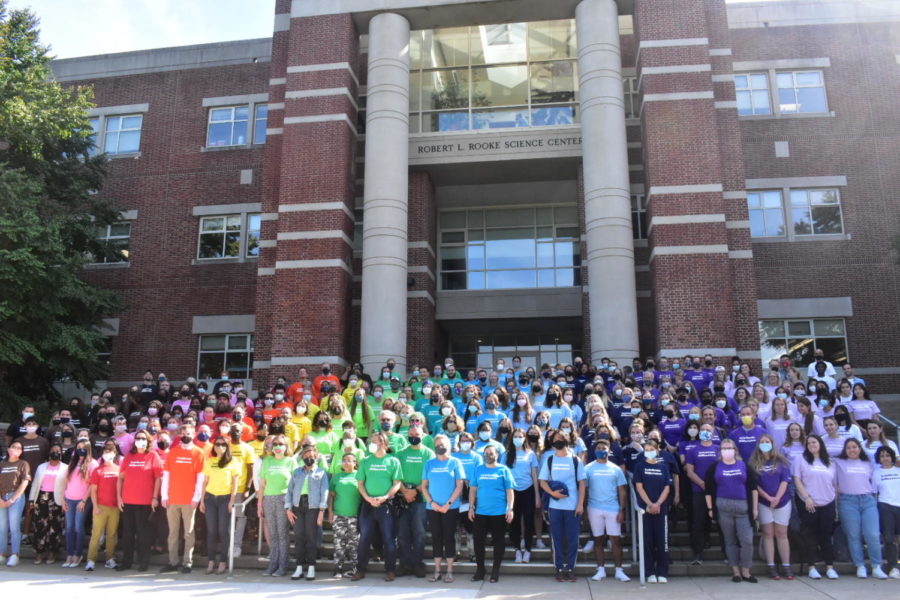
Jordan Vilchez survived Jonestown and spoke to the community about her experiences.
Kerong Kelly
Writer
Jordan Vilchez, one of the survivors of the tragedy at Jonestown, spoke to the University community on March 6, about her experiences as a young member of the People’s Temple.
At age 12, Vilchez became a member of the People’s Temple and subsequently relocated to Redwood Valley with her older sister. Just eight years later, they moved to Guyana. Vilchez left Jonestown the day before the mass loss of life, in order to attend a meeting in Georgetown, the capital of Guyana.
On Nov. 18, 1978, Vilchez lost her sisters and nephews during the infamous tragedy. As a member of the community, her job included being an active participant of the Planning Commission, which subsequently allowed her to familiarize herself with the inner workings of the movement. On a personal level, Vilchez recollected feelings of repression and a diminished sense of self worth and self-esteem.
“For me, I did not really exist for myself. I grew up feeling that my hopes, my dreams, my wishes, none of that mattered,” Vilchez said.
As a trusted youth in the community and the youngest member of the Planning Commission, Vilchez was chosen to complete tasks such as counting money, processing living requests and doing security shifts. Vilchez spoke about practices, such as the separation of families upon their arrival and public chastisement known as being “brought up.” Vilchez recalled specific instances, where ideas of complete control and total revolution were reflected in Jim Jones’ actions. For instance, Jones forced the youths to watch videos and read books such as “The Glass House” by Philip Johnson.
Vilchez currently lives in Berkeley, Calif. and has an integrative mentoring practice called the Cosmology of You. She also contributes to the yearly publication, “The Jonestown Report,” which includes biographical data, photographs and information of those who resided at Jonestown. It is also a compilation of remembrances and personal accounts of the experiences of living in Jonestown.
This semester, Professor of English Carmen Gillespie and Professor Emeritus Bob Gainer are teaching a course on the Jonestown massacre.
“It’s one thing reading all of these very different books to see Jonestown from different perspectives, but it’s another thing entirely to read a book or see a documentary and be able to hear the words from a person’s mouth and ask them the questions that ran through our heads as we’ve studied the tragedy. It’s really incredible,” Allison Friedlander ’16 said.
“The focus and purpose of this work is to remember and revisit the stories of Jonestown, to use narrative to uncover a deeper meaning to these events than the catchphrase about ‘drinking the Kool-Aid.’ The tragedy of Jonestown is an important piece of contemporary American history that bears continued examination in order to come to a better understanding of the intersections of power, race, sexuality, politics and the desire for social change that occurred leading up to that fateful moment. Of course, studying these events and coming to that more nuanced understanding will hopefully mean that we can learn from them, gleaning whatever positives we can from a situation with a terrible outcome, and preventing tragedies like this from happening again,” said Rebecca Willoughby, lecturer in English and interim assistant director of the Griot Institute.
“The Jonestown narrative engages fundamental questions of religion, race, nationality, power, civil rights, sexuality, poverty, aspiration and identity that are not disconnected from the dilemmas of the present moment,” Gillespie said. “I hope that both the Jonestown class and the series reintroduce the fundamental questions that the Jonestown tragedy invokes and brings about the recognition that this story resonates with issues that remain central in 2013.”
“Jonestown Reconsidered, 35 Years Later,” a series of events sponsored by the Griot Institute for Africana Studies, reflects on the events surrounding the Jonestown massacre. The lecture series creates a forum for students, professors and members of the community to discuss questions of religion, race, sexuality, power and aspiration. The talks are free and open to the general public.






















